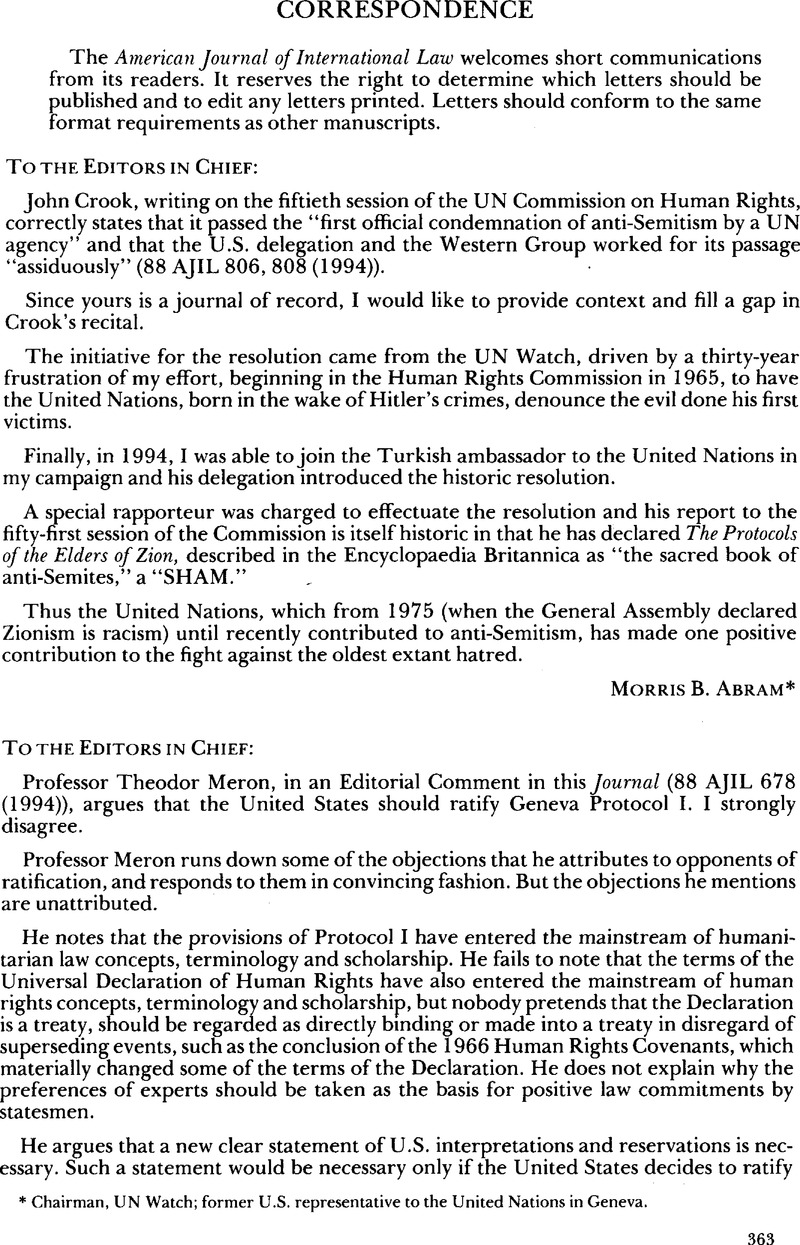Published online by Cambridge University Press: 27 February 2017

* Chairman, UN Watch; former U.S. representative to the United Nations in Geneva.
1 I have traced this history briefly elsewhere. Alfred P. Rubin, Terrorism and the Laxus of War, 12 Denv. J Int'l L. & Poly 219, esp. 220–28 (1983). See also Alfred P. Rubin, The Status of Rebels under the Geneva Conventions of 1949, 21 Int'l & Comp. L.Q. 472 (1972). Although not dealing directly with this point, the indispensable review of the laws of war applied to prisoners of war is Howard S. Levie, Prisoners of Waf in International Armed Conflict 34–36, 44–59 (Naval War College International Law Studies No 59, 1977). Professor Levie seems to miss the point a bit by claiming that members of units that disregard the laws of war are not in a position morally or legally to argue that they should be accorded the protection of the rules they themselves have disregarded. Id. at 50–51. If the laws of war apply, those who violate them become war criminals even if entitled to prisoner-of-war status. It is hard to see how those who commit atrocities would be protected by the law any more than criminals in a municipal law system.
2 Most compellingly in the Report of the Committee on Armed Conflict, American Branch of the International Law Association, Proceedings and Committee Reports 1979–1980, at 38 (1980). I was chairman and reporter for the committee, which was composed of as wide a spectrum of views as I could entice from among the most eminent U.S. authorities on the laws of war. The committee was split narrowly on the question of whether the United States should ratify the 1977 Protocols. As far as I could tell, it was unanimous on the recitation of history and confusion in the Protocols.
3 George H. Aldrich, Prospects for United States Ratification of Additional Protocol I to the 1949 Geneva Conventions, 85 AJIL 1 (1991); Alfred P. Rubin and George H. Aldrich, Correspondence, 85 AJIL 662, 663, respectively (1991). Professor Meron cites the first of these, but not the correspondence in which the critical points were raised. In his surrebuttal, Ambassador Aldrich wrote that my criticisms were not identified “with sufficient clarity to permit an answer.” Indeed, in my opinion he did not answer them. I cannot be clearer.